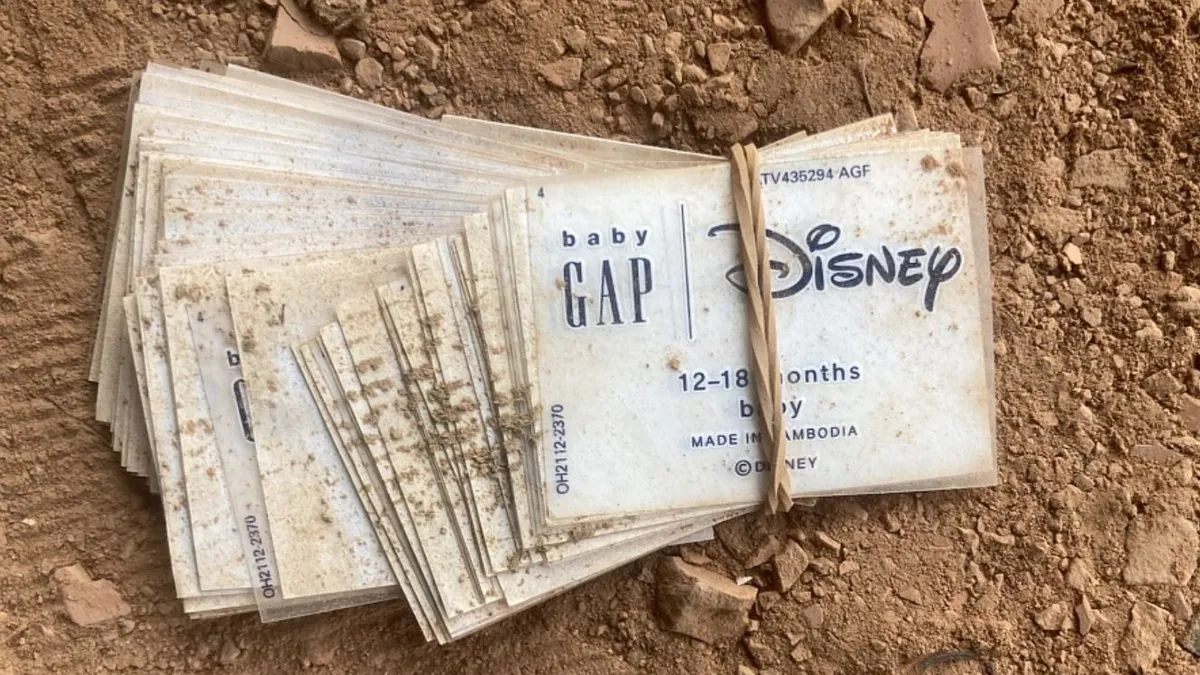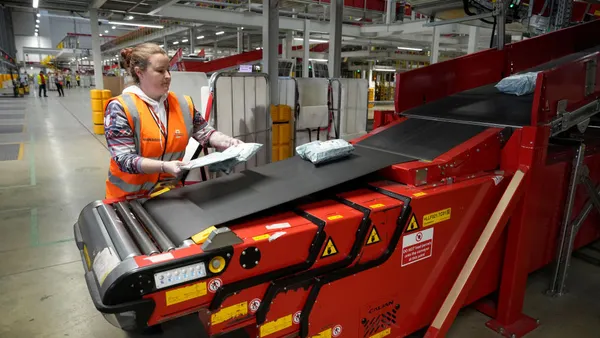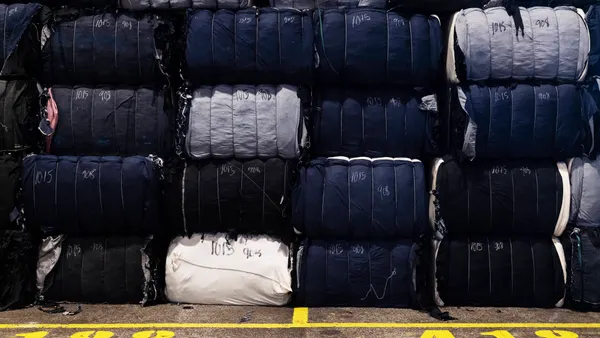Dive Brief:
- Waste from 19 international garment brands is being burned for fuel and has resulted in health and environmental problems, according to a report released Monday by the Cambodian League for the Promotion and Defense of Human Rights.
- The group, which uses its French acronym LICADHO, said in a statement that “brick factories often burn garment waste as cheap fuel for brick kilns” and that it had identified remnants at five operational and two permanently closed brick factories from April to September 2023.
- LICADHO contacted all the brands or parent companies last month, and reported that “just five companies replied within the requested timeframe,” including Adidas and Lululemon, both of which pledged investigations. At the time of the report, some of the brands that had not responded included Gap, Primark, Disney, Under Armour, Reebok and Sweaty Betty.
Dive Insight:
The information about garment waste comes from a larger report titled “Bound by Bricks: An Opportunity to End Debt Bondage and Child Labour in Cambodia’s Brick Factories,” also released Monday.
In that report, LICADHO said it gathered information from 21 brick factories in Cambodia’s Kandal province and in the capital Phnom Penh, including “dozens of conversations plus in-depth interviews with 10 workers” that outlined the extent of debt bondage in the region.
As part of its research, LICADHO photographed piles of burned and burning garment waste found at brick factories. Those images, along with brand responses, have been published on LICADHO’s website. The organization said in its statement that it would publish updates regarding additional responses if there are any.
The practice of burning garment waste for fuel in brick factories “appears to have increased in recent years,” said LICADHO in the statement. That’s despite the health and environmental impacts of the process, which LICADHO said have led to “respiratory problems, headaches and other harms” reported by factory workers and their children.
“Burning garment waste exposes brick factory workers, their children and nearby communities to harmful emissions, which are associated with negative health and environmental impacts,” stated LICADHO. “Debt-bonded workers interviewed by LICADHO who were exposed to smoke from burnt garment waste reported respiratory problems, headaches and feelings of increased illness during pregnancy.”
These issues are part of larger human rights concerns surrounding debt bondage and child labor, said LICADHO.
Debt bondage, also known as debt slavery or bonded labor, occurs “when a person is forced to work to pay off a debt,” as defined by the U.K.-based nonprofit Anti-Slavery International. LICADHO said the problem “remains rampant in the industry,” and that “low per-brick payments continue to drive children aged as young as nine years old” to work in brick factories. The organization alleges that “decades of inaction by the Cambodian government and construction and real estate sectors” have let “these human rights abuses” continue, and it has called for an immediate end to “these shameful practices.”
“Workers must be freed from bonded labour; child labour laws must be properly enforced and strengthened; and international garment brands must stop their waste from being burnt in brick kilns, harming the health of workers and their children,” stated LICADHO.
Textile incineration for fuel has occurred elsewhere in the world as a method to handle the massive amounts of waste produced by the fashion industry. However, the practice isn't widespread in the U.S., where textiles that aren't reused are often packaged and shipped overseas.











